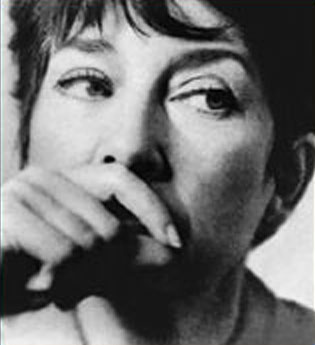- Home
- Licia Ginne, Psy.D., MFT
- Services
- Questions
- Articles
- ACA | Adult Children of Alcoholics
- Addiction Treatment – What is Addiction?
- Adults Abused as Children
- Alcohol: Is It a Problem?
- Anxiety
- Are You Codependent?
- Contemporary Psychoanalysis
- Creating Positive Life Changes
- What’s your relationship to your body & food
- Different Types of Therapy
- Divorce and Child Custody Mediation
- The Helicopter Story
- How to Fight Fair
- Improving Communication Skills
- Counseling & Psychotherapy
- Reasons to consider psychotherapy
- Relationship Boundaries – Essential to Healthy Relationships
- Couples Counseling
- Sex Addiction
- Stress – Flight or Fight
- Understanding Depression
- Psychology Readings
- Contact | Forms | Payment
Understanding Depression

Depression is more than just having a day here or there where we feel blue or out of sorts. Depression is a feeling of hopelessness, worthlessness, often accompanied by negative thoughts about ourselves, and can be a feeling of self-loathing. We may feel like we have run out of solutions to our problems and feel absolutely stuck. Depression may feel like a cloud that hovers over us and all we can do is wait for it to pass. Our negative thoughts may feel so convincing, it is hard for us to believe we could feel or think any other way.
There are various types of depression and you may experience the symptoms as very mild or severe, and you may have the symptom for a short period of time or feel like you never get relief from it.
The American Medical association has created criteria for defining possible diagnoses. Keep in mind that these are guidelines and you may find yourself or others falling into several categories, which is why it is important to work with a profession mental health care provider to diagnosis the problem and create a treatment plan.
A common symptom of depression is hopelessness and lethargy, this makes it hard to think or find solutions to our current situation. Psychotherapy can be helpful in expanding our world view of possibility and we might see that there are more options / solutions than we previously though
The following are lists of the usual symptoms that would lead to either a diagnosis of depression or manic depression:
Symptoms of Depression:
- Persistent sad, anxious, or “empty” mood
- Feelings of hopelessness, pessimism
- Feelings of guilt, worthlessness, helplessness
- Loss of interest or pleasure in hobbies and activities that you once enjoyed, including sex
- Insomnia, early-morning awakening, or oversleeping.
- Appetite and/or weight loss or overeating and weight gain
- Decreased energy. fatigue, being “slowed down”
- Thoughts of death or suicide, suicide attempts
- Restlessness, irritability
- Difficulty concentrating, remembering, making decisions
- Persistent physical symptoms that do not respond to treatment, such as headaches, digestive disorders, and chronic pain
There are different types of depression and these can run from mildly depressed to what’s called major depression. Depression can also be referred to as uni-polar depression. Major depression: is a most serious type of depression. Many people with a major depression find they cannot continue to function normally. They may find their behaviors affecting their work and their relationships.
Manic depression or bi-polar disorder could include episodes of depression as well as episodes of mania. The list below describes some of symptoms of mania:
Symptoms of Mania:
- Inappropriate elation
- Inappropriate irritability
- Severe insomnia
- Grandiose notions
- Increased talking
- Disconnected and racing thoughts
- Increased sexual desire
- Markedly increased energy
- Poor judgment
- Inappropriate social behavior
Depending upon the person and their symptoms often the best form of treatment can be a combination of medication and psychotherapy, though this is a decision that should be made together with your treating physician or psychotherapist.
This is a brief overview of depression and manic depression and should not be used to diagnose yourself or someone else. Only a licensed medical doctor or mental health treatment provider can actually diagnose mental health problems. If you are concerned about someone or yourself, please seek help from your physician, mental health clinic or mental health provider.
Articles
- ACA | Adult Children of Alcoholics
- Addiction Treatment – What is Addiction?
- Adults Abused as Children
- Alcohol: Is It a Problem?
- Anxiety
- Are You Codependent?
- Contemporary Psychoanalysis
- Creating Positive Life Changes
- What’s your relationship to your body & food
- Different Types of Therapy
- Divorce and Child Custody Mediation
- The Helicopter Story
- How to Fight Fair
- Improving Communication Skills
- Counseling & Psychotherapy
- Reasons to consider psychotherapy
- Relationship Boundaries – Essential to Healthy Relationships
- Couple’s Counseling
- Sex Addiction
- Stress – Flight or Fight
- Understanding Depression
LICIA GINNE, Psy.D. MFT
LICIA GINNE, Psy.D., MFT 21421
820 Bay Ave., Suite 205
Capitola, CA 95010
831 471-8647
[email protected]
